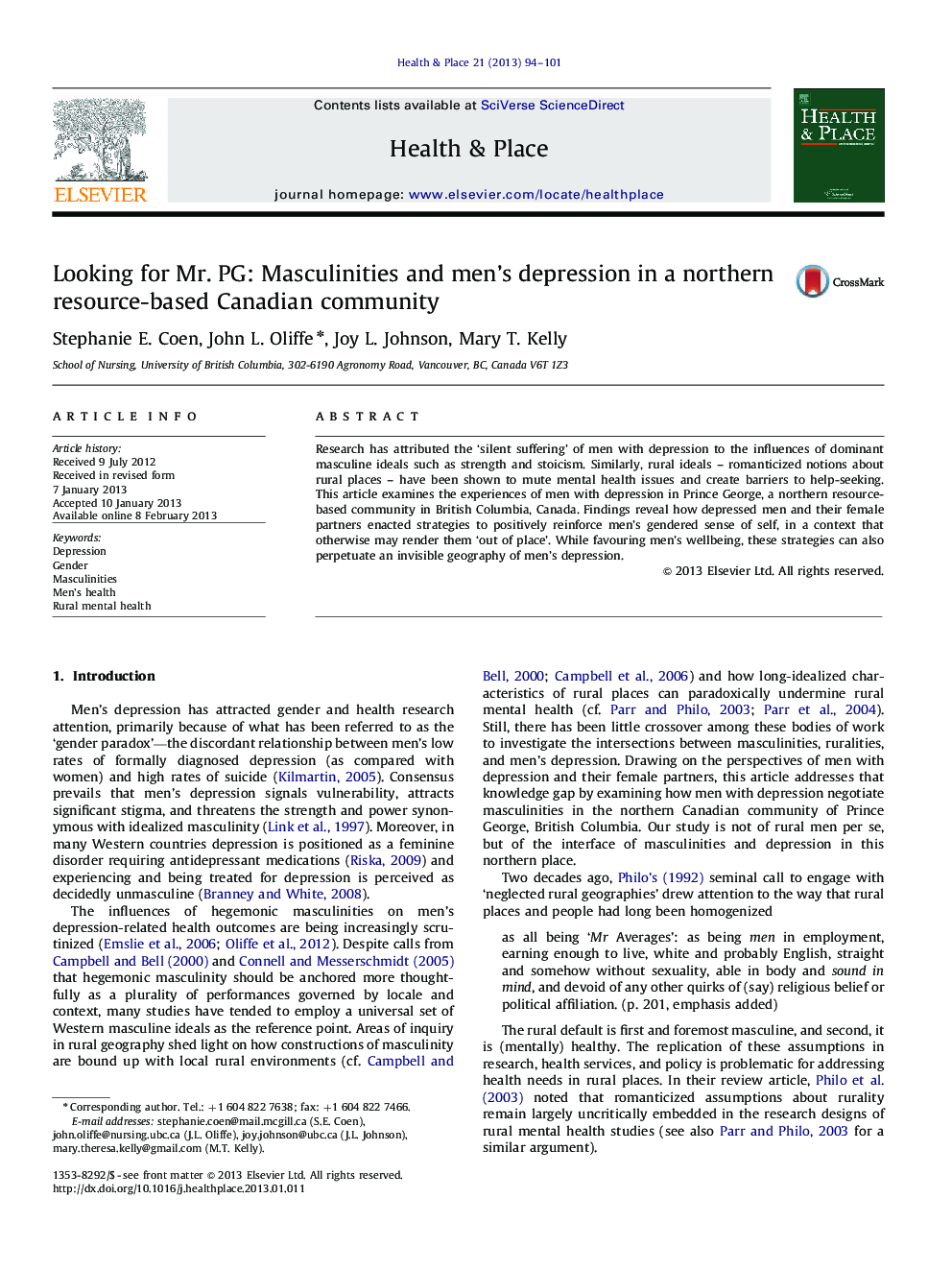| Article ID | Journal | Published Year | Pages | File Type |
|---|---|---|---|---|
| 1048648 | Health & Place | 2013 | 8 Pages |
Research has attributed the ‘silent suffering’ of men with depression to the influences of dominant masculine ideals such as strength and stoicism. Similarly, rural ideals – romanticized notions about rural places – have been shown to mute mental health issues and create barriers to help-seeking. This article examines the experiences of men with depression in Prince George, a northern resource-based community in British Columbia, Canada. Findings reveal how depressed men and their female partners enacted strategies to positively reinforce men’s gendered sense of self, in a context that otherwise may render them ‘out of place’. While favouring men’s wellbeing, these strategies can also perpetuate an invisible geography of men’s depression.
► Research links men’s ‘silent suffering’ to dominant masculine ideals. ► Men’s depression is often positioned as out of place in rural spaces. ► Men’s depression challenges eased with redefined heterosexual gender relations. ► Men maintained a positive gendered sense of self with alternative masculinities. ► Aspects of dialogic masculinities perpetuated a private geography of men’s depression.
